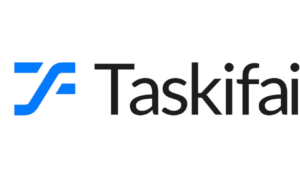Are you tired of being stuck in the middle when it comes to booking your accommodations? Do you find yourself overwhelmed by the endless options and confusing jargon thrown at you by online travel agencies? Well, fret no more! In this blog post, we will delve into the world of direct booking and unravel its mysteries with practical scenarios that will leave you feeling confident and empowered.
Introduction to Direct Booking
When travelers book their accommodation directly with a hotel rather than through an online travel agency (OTA) or other third-party platform, it is referred to as direct booking. A direct booking can be made either on the hotel’s website or by calling the hotel directly.
There are several advantages for both hotels and travelers when it comes to direct bookings. For hotels, direct bookings typically result in higher profits since they don’t have to pay commissions to OTAs. For travelers, direct bookings often mean lower prices since hotels pass on the savings from not paying commissions to OTAs. In addition, when travelers book directly with a hotel, they often have more control over their reservation and can make specific requests directly with the hotel (e.g., room type, bed type, etc.).
Despite the many advantages of direct booking, hotels still rely heavily on OTAs for reservations. According to a recent study by Phocuswright, nearly 60% of all online hotel reservations are made through an OTA. The main reason for this is that OTAs are very good at marketing and selling rooms online. They have invested heavily in search engine optimization (SEO) so that they appear as the top results when travelers search for hotels online. In addition, OTAs offer a wide variety of room types and rates from multiple hotels, which makes them a one-stop shop for travelers looking to compare options and find the best deal.
Given the advantages of both direct booking and OTAs, hotels should strive to find a balance between the two when it comes to generating reservations. To do this, they should focus on improving their direct booking strategies by optimizing their website for SEO, offering competitive rates and packages, and providing exceptional customer service. By doing so, hotels can ensure that they are taking full advantage of both direct bookings and OTAs in order to maximize their occupancy rates and profits.
What is direct booking?
When you book a hotel room, flight, or rental car directly with the provider rather than through a third-party website or travel agent, it’s called direct booking. You can book directly with companies in many industries—not just travel—including entertainment, event tickets, and more.
The main advantage of direct booking is that you generally get a better deal. When you book through a third party, the company has to pay a commission to that middleman. That cost is sometimes passed on to the customer in the form of higher prices. When you book directly with the provider, there’s no middleman taking a cut, so you may be able to get a lower price.
There are other advantages to direct booking as well. When you have questions or problems with your reservation, you can go straight to the source for customer service. And when you build a relationship with a company by booking directly with them rather than through a third-party website, you may be able to access loyalty programs and other perks.
Of course, there are also some disadvantages to direct booking. It can sometimes be more time-consuming to find the best deal when booking directly with each individual company. And if you need help planning your trip or understanding your options, working with a travel agent or using a third-party booking site may be easier and less stressful than dealing with multiple companies on your own.
Ultimately, whether or not you choose to book directly with the provider is up to you. Direct booking can be a great way to save money and access exclusive benefits, but it may not always be the best option for every traveler.
Advantages of Direct Booking
When it comes to booking accommodations, there are several advantages to booking directly with the property rather than through a third-party platform. For starters, you can be sure that you’re getting the best price possible, as there are no middlemen or markup fees involved. You’ll also have a direct line of communication with the property in case you need to make any changes or have any questions.
Another advantage of direct booking is that you can take advantage of special deals and promotions that may not be available through third-party platforms. For example, many properties offer loyalty programs and rewards for guests who book direct. You may also be able to snag a lower rate if you book your stay well in advance.
When you book directly with a property, you’re helping to support small businesses and local economies. So not only are you getting the best possible price and service, but you’re also doing your part to boost the local economy!
Practical Examples of Direct Booking
There are a number of ways that hotels can encourage direct bookings, and many of them are quite simple. For example, hotels can make it easy for guests to find their contact information on their website and in their marketing materials. They can also offer special deals and discounts for those who book directly with the hotel. Additionally, hotels can create a sense of urgency by running promotions that are only available for a limited time or for a specific number of rooms. Hotels can provide excellent customer service to those who book directly with them, which will encourage guests to book again in the future.
How to Increase Your Hotel’s Direct Bookings
There are a variety of ways that you can increase the number of direct bookings at your hotel. Below are some practical tips that you can implement to make this happen:
1. Make sure your website is up-to-date and easy to navigate.
2. Use social media platforms to drive traffic to your website.
3. Use search engine optimization techniques to ensure your website appears as the top result for relevant searches.
4. Offer incentives for guests who book directly with you, such as discounts or special perks.
5. Provide exceptional customer service throughout the booking process and beyond.
Limitations of Direct Booking
There are a few key limitations to keep in mind when considering direct bookings for your property:
1. You may have less control over pricing and availability. When you go through a third-party site, they typically handle the pricing and availability for you. This means that you may not be able to offer certain discounts or promotions that you could if a guest booked directly with you.
2. You may have less control over the guest experience. Third-party sites also typically handle the guest experience from start to finish. This means that you may not be able to provide certain amenities or services that you would if the guest were booking directly with you.
3. You may have to pay commissions or fees. Many third-party sites charge commission fees, which can eat into your profits. Additionally, some sites charge guests service fees, which could deter them from booking with you directly.
4. You may need to meet certain requirements: Some third-party sites have specific requirements for properties in order to be listed on their site (e.g., minimum number of rooms, certain amenities, etc.). If you don’t meet these requirements, you won’t be able to use their platform to market your property.
Conclusion
In conclusion, direct booking is an incredibly valuable business strategy that can help increase profits and customer loyalty. Direct bookings allow hotels to cut out the middleman by engaging customers directly while providing better rates for guests and more personalized experiences. By understanding this concept and using practical scenarios to demonstrate its value, hoteliers can ensure their success in a competitive industry landscape.



































